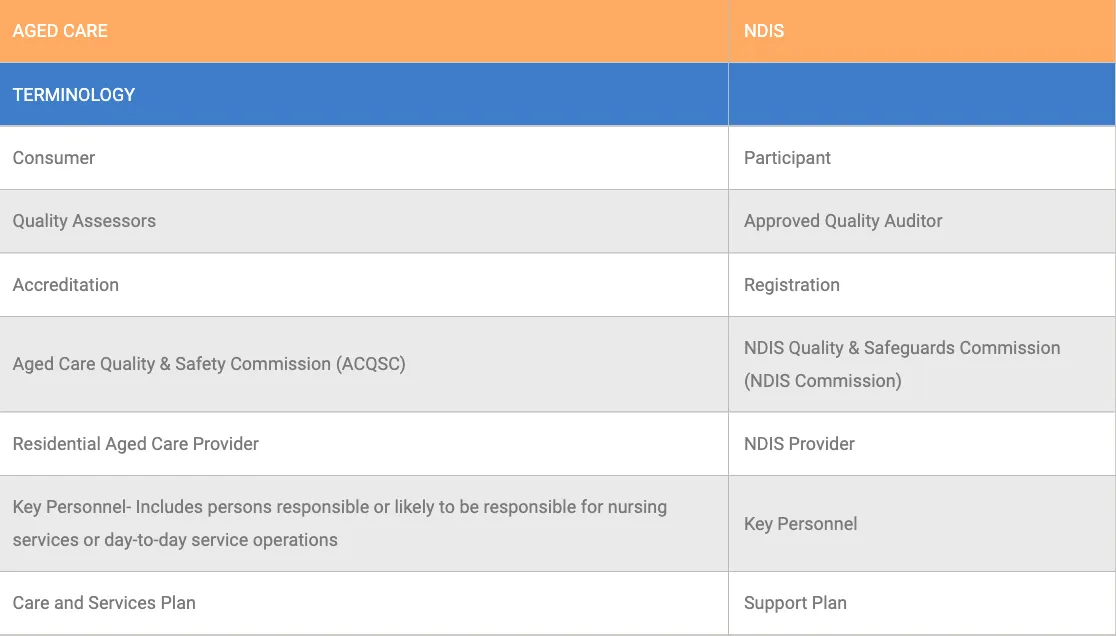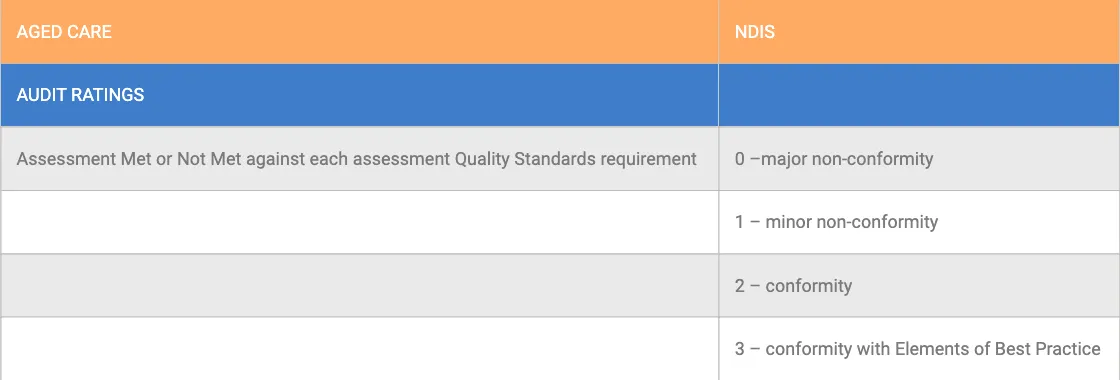Your Guide to Transitioning Residential Aged Care to the NDIS
November 21, 2022
This is a Residential Aged Care transition guide to the NDIS written by professional NDIS consultants at Provider+. This guide should be used as a resource tool along with NDIS resources linked to this article.
I Am a Residential Aged Care Provider. Do I Need to Register For The NDIS?
On 1 December 2020, Residential Aged Care (RAC) providers supplying services to NDIS participants in their facilities automatically became registered NDIS providers. If this describes your circumstances, you must now decide whether to renew your registration or stop providing services to NDIS participants.
If you are a Residential Aged Care provider that has acquired NDIS participants after 1 December 2020, you may also need to register with the NDIS Commission. For more information please go HERE.
Commonalities Between RAC and NDIS Standards
General
Around half of the NDIS Practice Standards requirements in the Core Module are the same as those of the Aged Care Quality Standards.
There are several broad commonalities across both sets of standards, which include the requirements for:
Organisational systems covering:
- Feedback and complaints
- Incidents management
- Compliance
- Risk
- Continuous improvement
- Governance
- Information management
- Human resource management
Support provision processes including:
- Assessment
- Planning
- Review of supports
- Management of individual risks
Support and respect for:
- Individual choice
- Independence
- Privacy
- Dignity
- Culture and diversity
- Infection control processes
- Safe environments
Audit Processes
Commonalities across the aged care and NDIS audit processes include:
- Both approaches require providers to demonstrate compliance with quality standards.
- Both processes require an assessment of provider and key personnel suitability.
- Both processes require providers to demonstrate knowledge of quality standards, legislation, policy, and procedures.
- General audit processes and methodology.Assessment against quality standards and quality indicators, review of policy and procedures, interviews with staff and participants, site sampling, review and outcome findings by the relevant Commission.
- 3-year audit cycle.
Comparison Tables







Similarities




The ACQS and NDIS Practice Standards Comparison Tool
The ACQS and NDIS Practice Standards Comparison Tool can help determine how the Aged Care Quality Standards link to the NDIS Practice Standards (and each Quality Indicator).
Please Note:
All applicable Quality Indicators for an NDIS Practice Standard are considered during an NDIS audit, it is vital to look at these individually.
We highly advise you to refer to the Evidence Guide (Part I) for suggested ways to demonstrate these requirements.
The following Standards Comparison Tool will enable RAC providers to pinpoint where further evidence may be required to gain the assurance they need to meet the NDIS Practice Standards.
The following ratings (and colour coding) have been used in the Standards Comparison Tool:






